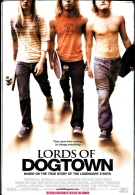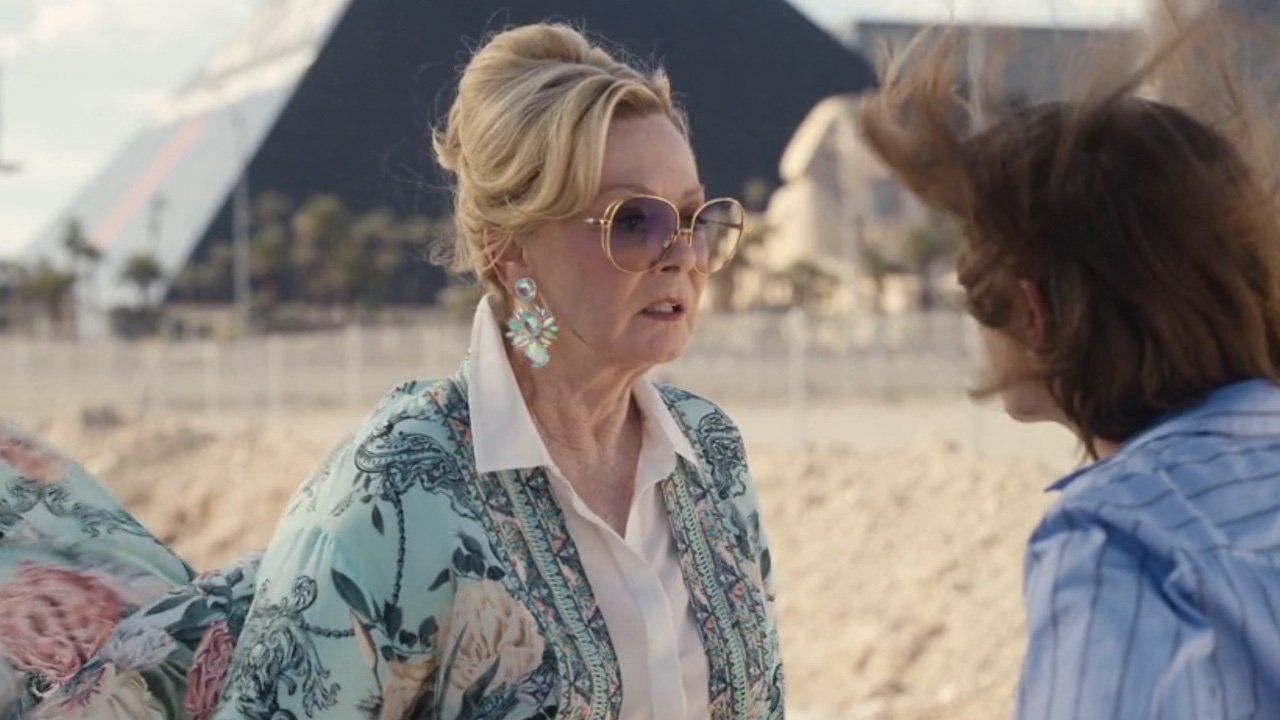Movies about sports have often focused on the most popular sports—either baseball, basketball, football, or hockey, (soccer had only one gem, Bend It Like Beckham), and any sport outside of these four has fallen under the category of a subgenre, which would include golf (material better suited for comedies; take Tin Cup and Happy Gilmore as proof), horse racing, and “extreme” sports, meaning anything without points, teams, and (seemingly) rules. These “extreme” games (just saying the word makes me thirst for a Mountain Dew) usually involve standing on a board; you navigate by water or wheels.
In Lords of Dogtown, fans of the “extreme” are treated not only to a sensory overload of skateboarding stunts, but the origins of the skateboarding phenomenon, before Tony Hawk, the most popular skater of all time, was old enough to do those kickflips and ollys. For them, this is the Episode III of skater movies. For the rest of us, it’s just a headache.
In the 1970’s, skateboarding had grown into a cult interest, and like many unpopular sports, it had yet to realize its full potential. Enter the now-legendary “Z-Boys” (standing for Zephyr, the skate shop where the boys hang out), a group of teenage surfers whose lifestyle was brought on by their rough upbringing in “Dogtown” in Venice, California. These young surfers would soon become the pioneers of the skateboarding revolution—Stacy Peralta, Tony Alva, and Jay Adams—doing tricks and performing stunts no one had ever dreamed of. Organized by Skip Engblom (Heath Ledger), the Zephyr shop owner, the boys (played by, respectively, John Robinson, Victor Rasuk, and Emile Hirsch) would start to shake up skating competitions (where they got into fistfights with judges), sneak into empty swimming pools to practice their craft, and live the recklessly sex-and-drug-filled life of an angst-ridden teenager.
Eventually, the skate craze caught on, and the boys found success, particularly Alva, who becomes an overnight superstar thanks to the P.R. manipulations of a promoter played by the ever-energetic Johnny Knoxville. Peralta chooses simpler promotions over the glitz and glamour of Alva’s career, while Adams descends into gang life after getting involved with Alva’s sister (Nikki Reed).
If you think you saw this movie before, it’s because in a sense you have. Only the first time out was better. The multiple-award winning documentary Dogtown and Z-Boys (which Peralta wrote and directed) first chronicled this story in 2002, and the result was an informative, gripping film. Lords of Dogtown is more or less the equivalent to skater porn: endless shots of the gravity-defying aerial stunts are occasionally sprinkled in with the throwaway dramatic moments, much like sex is sprinkled in with dialogue in a porno film. As with porn, viewers who came to see the skating will find themselves grabbing for a remote to get through the “story.” It’s understandable, since the real showcase is the magnificent skating sequences, (which, as I far as I could tell, where mostly performed by the leads).
But as written by Peralta himself, Lords of Dogtown fails to convince us that we should care about anything besides the frequent skating competitions. The film skims the surface of some interesting themes—Alva’s dedication to making his demanding single father proud, Robinson’s loyalty to his hardworking single mother (a practically unrecognizable Rebecca De Mornay, pulling a Kim Basinger by looking attractive even in a trashy environment)—but none play out, much less pay off. Ideas are introduced, and then disappear. Early on, there’s a scene where Adams says goodbye to his mother’s boyfriend, who’s leaving for bigger and better things, and then goes into a fit afterwards. The problem is, we have no clue about who this man is or his relationship with Adams. He never appears again nor he is he even mentioned.
Two performances make some of the drama work, especially Hirsch, who does a 180 from his performance in The Girl Next Door as he slowly transforms from a wide-eyed surfer into a mucho loco hood, and Heath Ledger, who gets to ham it up doing a dopey Val Kilmer impression. With oversized dentures giving him the world’s largest overbite, Ledger looks high for most of the film, and he’s still a hoot. The shame is how badly Nikki Reed, as Alva’s semi-nymph sister, is wasted. Reed, who showed potential in Thirteen (also directed by Catherine Hardwicke) is reduced to nothing more than the “worried sister” role.
Director Catherine Hardwicke still enjoys lingering over long, exploitive shots of teenagers boozing up and getting down, but unlike Thirteen (which I also regrettably disliked), it all seems intended to shock rather than inform. Lords of Dogtown should have topped Dogtown and Z-Boys, because the drama of the facts could have been amplified by the fiction. These boys never show us a story so riveting that we should ever see them as anything more than just boys. In end, this is the most baffling lordship since Michael Flatley.











